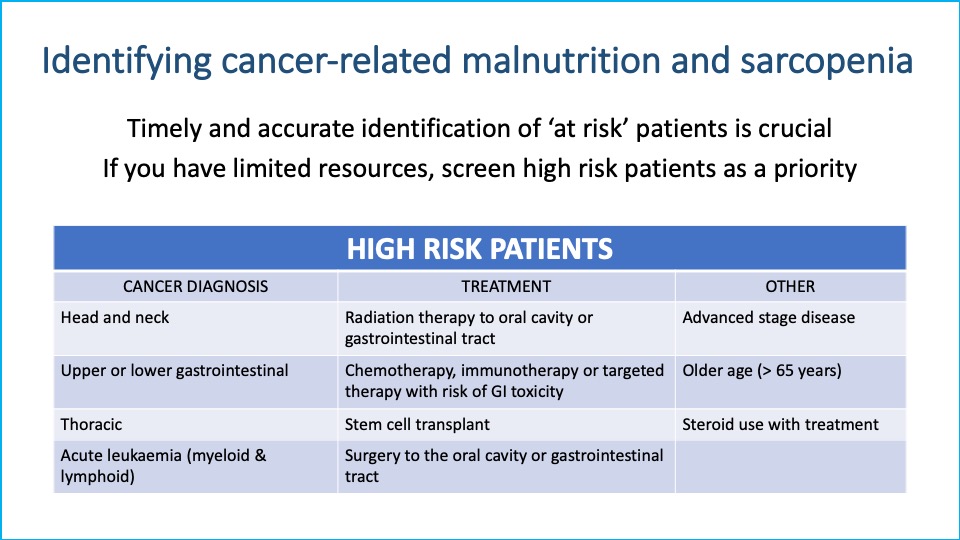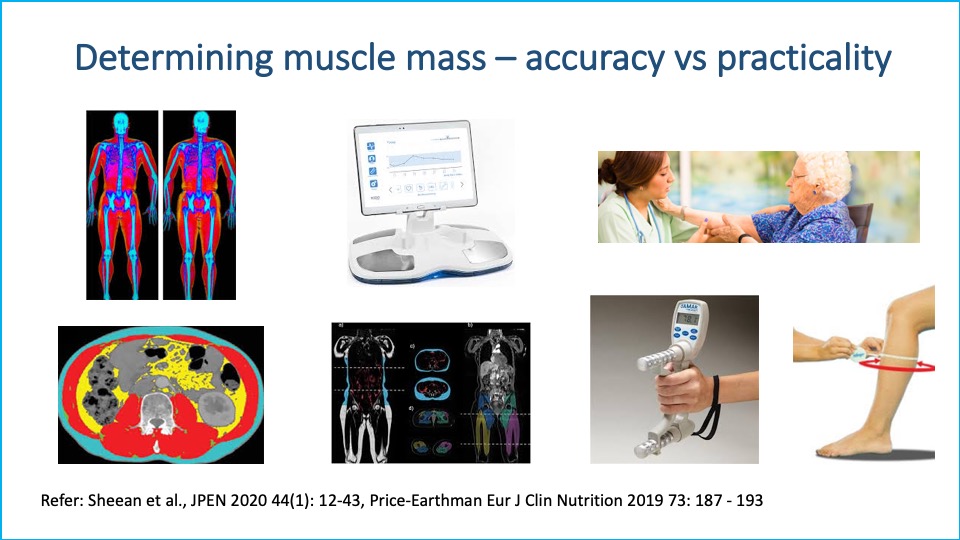FREE Cancer-related malnutrition and sarcopenia. Presented by Dr Nicole Kiss, PhD, AdvAPD
Multiple Australian and international evidence-based guidelines support the early identification and treatment of cancer-related malnutrition and sarcopenia, however there is considerable variation in practices across health care settings. The Clinical Oncology Society of Australia (COSA) position statement is designed to provide a framework to achieve optimal care and help us advocate for resources and services required.
The position statement is succinct, being just 15 pages, with recommendations relating to the identification, assessment and treatment of cancer-related malnutrition and sarcopenia, as well as the role of the multidisciplinary team.
Nicole explains the COSA position statement and in particular emphasises how the recommendations can be implemented.
Step 1: Identification. The timely and accurate identification of patients ‘at risk’ of malnutrition and sarcopenia. She describes the various screening tools and suggests incorporating screening tools for malnutrition and sarcopenia into existing processes.
Step 2: Assessment. The nutritional assessment of malnutrition should preferably be conducted by a dietitian. The evaluation of muscle status can use a combination of assessments for muscle mass, strength and function.
Step 3: Treatment. Medical nutrition therapy, targeted exercise prescription and physical activity advice, and physical and psychological symptom management.
Step 4: The role of the multidisciplinary team. A multidisciplinary approach to identifying, assessing and treating cancer-related malnutrition and sarcopenia is essential for optimal care. Importantly, the COSA model includes family and carers as well as a range of health professionals in the team.
The COSA website contains a downloadable infographic and care pathway
Read more about the position statement and the role of dietitians here: Muscle loss and malnutrition in people with cancer - why prompt screening is essential


Dr Nicole Kiss is an advanced APD with more than 20 years’ experience in cancer nutrition and is Chair of the Nutrition Group of the Clinical Oncology Society of Australia. Nicole is a Victorian Cancer Agency Clinical Research Fellow and co-lead of the Exercise and Nutrition for Cancer research group in the Institute for Physical Activity and Nutrition at Deakin University. Nicole’s research interests include interventions to optimise nutritional and functional outcomes during and after cancer therapy with a particular focus on body composition, cancer-related malnutrition and sarcopenia. Nicole has been a member of steering committees for the development of multiple evidence-based guidelines on nutrition and cancer and is led the development of the position statement on cancer-related malnutrition and sarcopenia for the Clinical Oncology Society of Australia.
To register for this complimentary presentation and associated documents including the assessment quiz click here